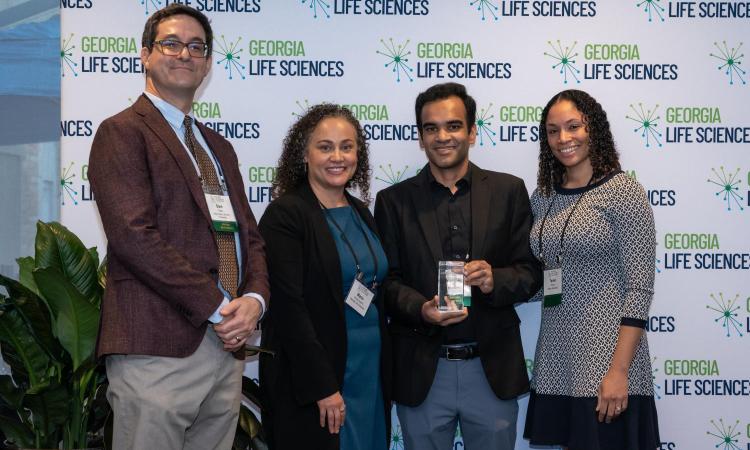(text and background only visible when logged in)

(text and background only visible when logged in)
Heart failure remains one of the most challenging conditions to monitor outside the clinic. Patients may experience changes in symptoms, such as fatigue or shortness of breath, between visits, yet many current devices provide limited data, leaving physicians without continuous insight into heart function.
“Despite advances in digital health, continuous monitoring of the heart’s mechanical function has remained difficult outside clinical settings,” said Omer Inan, researcher and entrepreneur at Georgia Tech. “Patients and physicians have long needed a tool that provides deeper, real-time insights into heart performance without invasive procedures. We decided to tackle that problem head-on with a wearable device.”
Inan’s lab got to work using seismocardiography, a technique that measures tiny chest vibrations linked to cardiac activity, to explore new ways of monitoring heart health. Out of that work, a collaboration between Georgia Tech, Northwestern, and University of California San Francisco, came the CardioTag™ device, a lightweight wearable patch that captures multiple signals, including electrocardiography and seismocardiography, to provide a more complete view of how the heart functions in everyday life.
Read the full story on the Georgia Tech Office of Commercialization's website.
(text and background only visible when logged in)
Related Content
Zia Wins Georgia Life Sciences Golden Helix Innovation Award
The ECE researcher won the award for his neuromuscular diagnostic technology, named Myomatrix.
Mandal Recognized for Advances in Neurological Disorder Treatment Technology
The recent ECE Ph.D. graduate was awarded the Best Student Paper Award at the 2025 IEEE Custom Integrated Circuits Conference, where he presented a novel integrated circuit architecture designed to overcome the shortcomings of current neuromodulation technology.

